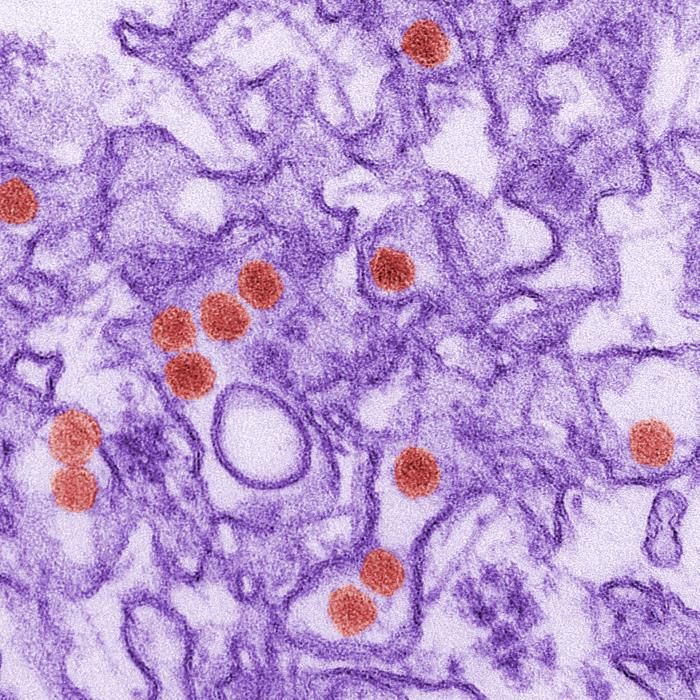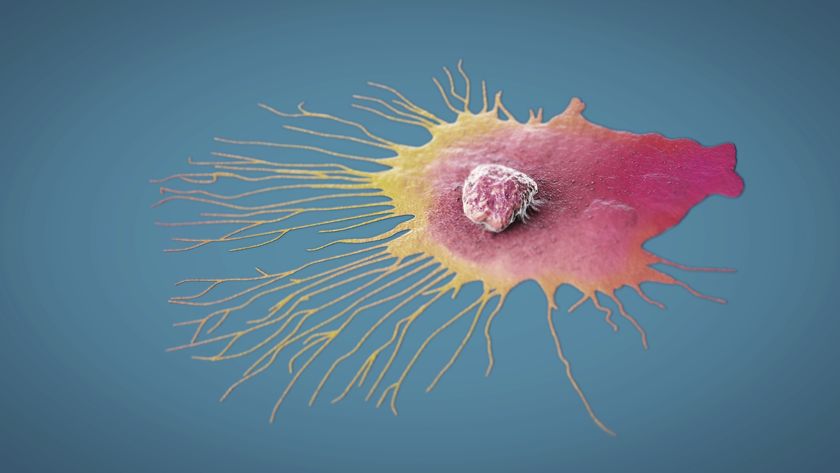30 Cases of Zika Now Confirmed in Puerto Rico

Healthcare workers have confirmed Zika virus infections in 30 people in Puerto Rico since November, according to a new report. The first locally transmitted case of Zika was reported there in late December.
The report gives a detailed account of how the mosquito-borne virus' has been moving around the Caribbean island, a U.S. territory with about 3.6 million people. The virus poses a significant concern to pregnant women, as it may lead to microcephaly (small head size) and other birth defects in their children.
No cases of microcephaly have been reported in Puerto Rico that are possibly associated with Zika, the new report from the Centers for Disease Control and Prevention (CDC) said.
Doctors reported the first locally acquired Zika case in southeastern Puerto Rico on Dec. 31, 2015, according to the report, published by the CDC today (Feb. 12). [Zika Virus FAQs: Top Questions Answered]
Increased surveillance helped health care workers diagnose 27 people as having laboratory-confirmed Zika infections from Nov. 25, 2015, to Jan. 28, 2016, the report said.
A survey of these patients revealed that the vast majority (93 percent) live in eastern Puerto Rico, or the San Juan metropolitan area. Most of the people who became sick with the virus had a rash, muscle pain, joint pain and eye pain. Four of those patients needed to be hospitalized, the CDC said.
In most people who become infected, the virus causes no symptoms, the CDC has said.
Sign up for the Live Science daily newsletter now
Get the world’s most fascinating discoveries delivered straight to your inbox.
One of the patients was a woman in her first trimester of pregnancy, according to the report. The first trimester is a crucial time for fetal brain development, Dr. Amesh Adalja, an infectious disease specialist and a senior associate at the University of Pittsburgh Medical Center's Center for Health Security, told Live Science earlier this year.
Another patient, who was among those hospitalized, developed Guillain-Barre Syndrome, the report said. The condition is an autoimmune disorder, and might be associated with the virus. Puerto Rico is home to Aedes aegypti,one of the species of mosquitos that carries Zika virus, so health officials expect the virus to spread throughout the island, the report said. To better monitor the virus, the Puerto Rico Department of Health and the CDC are asking doctors there to report all cases of suspected Zika virus, microcephaly and Guillain-Barre syndrome.
There is no medication or vaccine to treat or prevent ZIka virus. But people can protect themselves from the virus by avoiding mosquito bites, which can be done by wearing long pants and long-sleeved shirts, using insect repellent containing DEET or picaridin, and covering their windows and doors with screens.
The virus can also been found in the semen, urine and saliva of infected people, according to a 2015 study in the journal Emerging Infectious Diseases.
The CDC has advised pregnant women to avoid travel to areas where the virus is spreading, and for men who travel to these areas and have a pregnant partner to either use condoms or abstain from sex until their partner gives birth.
Follow Laura Geggel on Twitter @LauraGeggel. Follow Live Science @livescience, Facebook & Google+. Original article on Live Science.

Laura is the archaeology and Life's Little Mysteries editor at Live Science. She also reports on general science, including paleontology. Her work has appeared in The New York Times, Scholastic, Popular Science and Spectrum, a site on autism research. She has won multiple awards from the Society of Professional Journalists and the Washington Newspaper Publishers Association for her reporting at a weekly newspaper near Seattle. Laura holds a bachelor's degree in English literature and psychology from Washington University in St. Louis and a master's degree in science writing from NYU.


